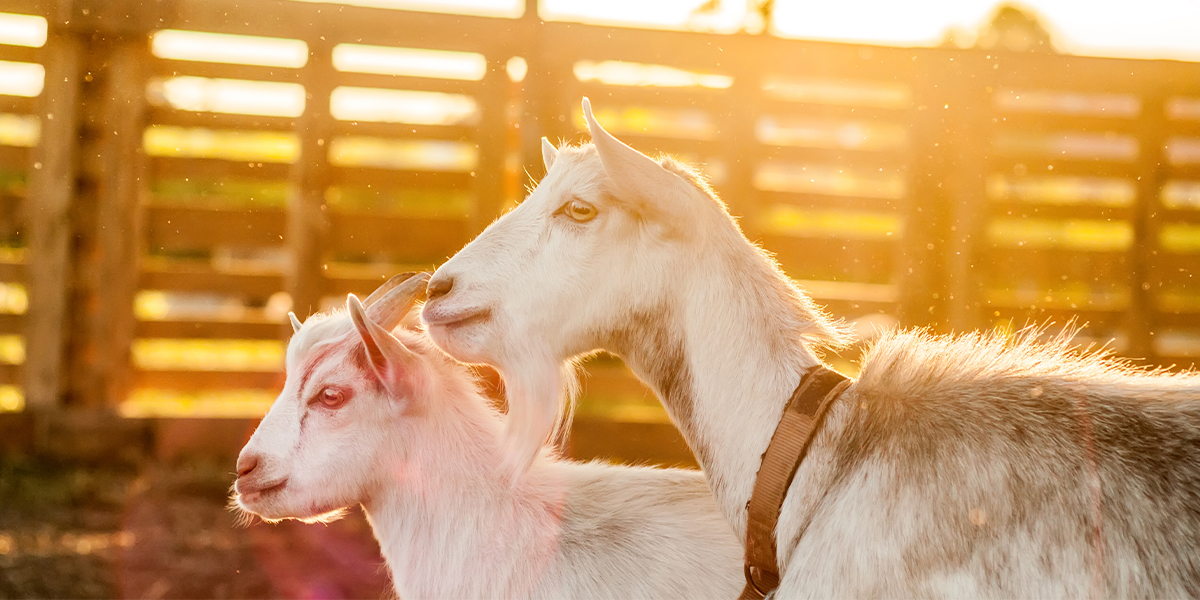Think about all of the factors that affect your bottom line as a commercial sheep or goat producer. The costs of your inputs and the ever-changing market value of your animals will certainly play a role.
But nothing is more crucial than a successful breeding program.
If your operation is experiencing low conception rates or a high frequency of lost pregnancies, it reduces the number of animals that make it to market and increases your labor costs. Also, artificial insemination programs are expensive for sheep and goats, so if they are unsuccessful, you can chalk it up as a lost investment.
All of these factors can have a negative impact on your profitability.
The best way to optimize your earning potential is to enhance the likelihood of your ewes and does becoming pregnant and successfully delivering a lamb or kid. Producing twins is even better.
Below are five ways you can impact the sperm quality of rams and bucks, as well as set your ewes and does up for a successful pregnancy.
Tips for Improving Sheep and Goat Breeding
- Reduce lameness in rams and bucks
This has an indirect impact on breeding, but it’s very important. If rams and bucks are dealing with lameness issues, like foot rot, they will be more content to lay around rather than breed with ewes and does. Additionally, lameness causes inflammation, which diverts nutrients and energy away from producing high-quality sperm. If we can keep their hooves healthy, they will produce higher-quality sperm and be more capable of breeding with females.
- Select rams and bucks for testicle size
Rams and bucks with larger testicles have better reproductive performance than those with smaller testicles because they are able to produce more sperm in a 24-hour period. Therefore, they are able to breed with more females each day. Additionally, they will have a larger ejaculate and more sperm cells going into each female, which increases the likelihood of a pregnancy. Testicular circumference should be part of your ram or buck selection criteria.
- Mitigate the effects of heat stress
Heat stress is a major factor in breeding. During heat stress, rams and bucks produce lower-quality semen with lower motility. Similar to lameness, this is because the stress induces an immune response that utilizes energy and nutrients that could otherwise have been used for sperm production. Improving trace mineral source can reduce the effect of heat stress and ensure they are continuing to produce high-quality, motile sperm.
- Improve pregnancy retention
Ensuring that the ewe or doe is providing a favorable environment for the growing embryo is crucial to pregnancy rate success. This is especially important since early embryonic loss is the biggest contributor to overall pregnancy loss. Research shows that improved trace mineral nutrition in replacement females from development to pregnancy confirmation can help those females better maintain their pregnancies.
- Do your research when purchasing bucks and rams
When purchasing bucks and rams to breed with your ewes and does, be sure to review their history. Have they bred successfully before or have they had a history of early embryonic mortality? You also need to look at the breeding traits of ewes and does. Examine their estimated breeding values (EBVs) to make sure they have a history of breeding successfully. This will help you create a successful breeding program.
The Role of Trace Minerals in Improving Sheep and Goat Breeding
Trace minerals, especially zinc and manganese, play an important role in improving sheep and goat reproduction.
Zinc plays a role in over 300 different enzyme systems and is responsible for improving the immune system, mitigating the effects of heat stress, reducing lameness and more. We have found that supplementing zinc from performance trace minerals reduces hoof lesions and lameness. It helped rams and bucks produce sperm that was more motile, progressive and rapid, all of which increase the likelihood that they will breed successfully. On the female side, performance trace minerals have shown to improve oocyte quality, embryo quality and embryo survival after AI.
Manganese is important for the stimulation of the hormones LH and FSH, both of which are responsible for releasing the egg from the ovary. Supplementing manganese from performance trace minerals can help ensure that the egg is being released properly, increasing the chance of a successful pregnancy. It can even increase the chances of multiple eggs being released to increase the likelihood of conceiving twins.
Improving your sheep or goat breeding program helps you maximize your earning potential by keeping animals healthy and getting more animals to market. To learn more about how our team can help improve reproduction on your sheep and goat operation, contact your Zinpro representative today.

